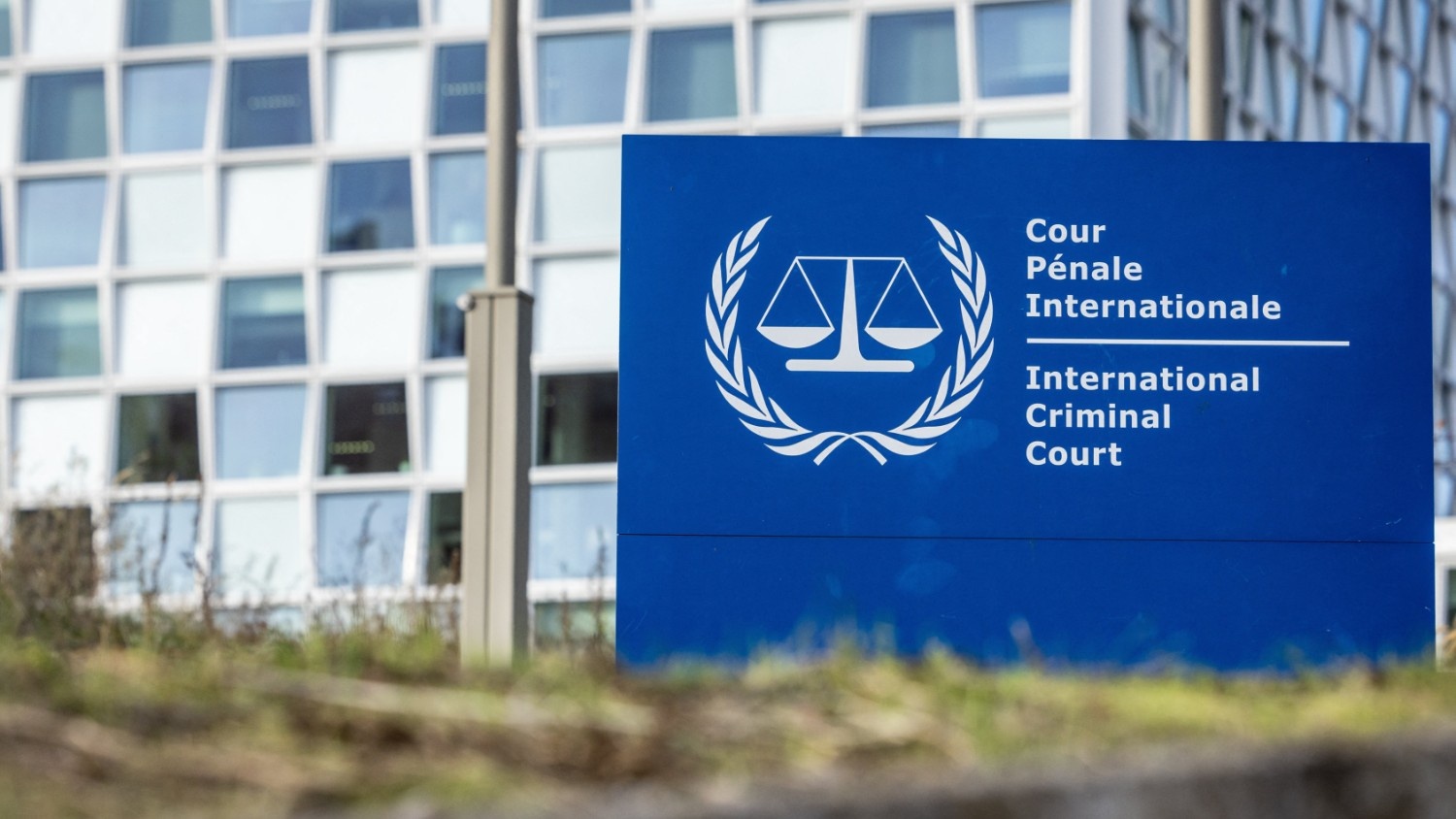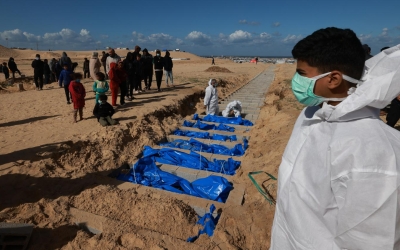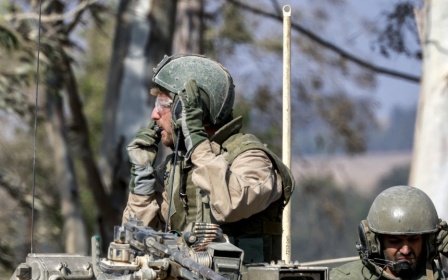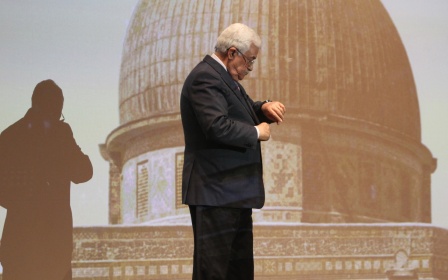The ICC issued arrest warrants against Israeli leaders. Could US officials be next?

The International Criminal Court (ICC)'s decision last week to issue arrest warrants against Israeli Prime Minister Benjamin Netanyahu, former Israeli Defence Minister Yoav Gallant, and Hamas commander Mohammed Deif sent shockwaves throughout the western world.
The ICC issued the court orders over the Israeli leaders' roles in the war on Gaza, a conflict in which Israeli forces have killed tens of thousands of Palestinians. In contrast, the arrest warrant against Deif was issued over his involvement in the 7 October Hamas-led attacks on southern Israel, which killed around 1,200 people and saw over 200 taken back to Gaza as captives.
The court's decision to issue such warrants for the first time against the leaders of a western-allied country sets a legal precedent that could have significant implications in international law.
One such implication could be that, by extension, US officials could be punished at the ICC for their support for crimes committed by Israel's military in Gaza.
While that outcome is unlikely, legal experts say that the ICC and the Rome Statute contain the legal mechanisms that could technically bring charges against key officials in the Biden administration.
New MEE newsletter: Jerusalem Dispatch
Sign up to get the latest insights and analysis on Israel-Palestine, alongside Turkey Unpacked and other MEE newsletters
"It would ultimately be up to the court to evaluate the evidence against US officials, but the Rome Statute certainly includes ways individuals could be held personally liable for contributing to war crimes - including, for example, the provision of weapons," Celeste Kmiotek, a staff lawyer at the Atlantic Council's Strategic Litigation Project, told Middle East Eye.
The White House has called the ICC's arrest warrants against Netanyahu and Gallant "outrageous".
'Because Palestine is a State Party to the Rome Statute, the Pre-Trial Chamber can issue warrants for anyone ... liable for crimes on Palestinian territory'
- Celeste Kmiotek, Atlantic Council
“The United States has been clear that the ICC does not have jurisdiction over this matter. In coordination with partners, including Israel, we are discussing next steps," a White House National Security Council spokesperson said in a statement.
The US and Israel are not parties to the Rome Statute, but Palestine is. And with the war on Gaza taking place inside the Palestinian territories, this gives the ICC jurisdiction to pursue charges against any individual involved in the war.
"Because Palestine is a State Party to the Rome Statute, the Pre-Trial Chamber can issue warrants for anyone, regardless of their nationality, who is liable for crimes on Palestinian territory," Kmiotek said.
Kmiotek said that warrants could be brought against "western officials like those in the US who have supported Israel, and officials like those of the Iranian government who have supported Hamas".
Article 25 of Rome Statute
Several legal experts have told MEE that the pathway for the ICC to pursue arrest warrants against US officials for crimes committed in the Israeli war on Gaza lies in Article 25 of the Rome Statute.
The Rome Statute is the treaty that established the ICC, and Article 25 deals with individual criminal responsibility.
Democracy for the Arab World Now said in a statement last week that US officials could be found liable for war crimes under Article 25(3)(c).
The human rights group said the clause states that any person would be liable for punishment if the individual "aids, abets or otherwise assists" in the commission of a crime, including "providing the means for its commission".
While the US is not a party to the war on Gaza, it has been providing the largest amount of military aid to Israel out of any other country in the world. Since the war on Gaza began in October 2023, the US began immediately fast-tracking weapons shipments to Israel.
However, the bar to bring charges against US officials for this is high.
"The assistance must have furthered or advanced the crime in some way and must have been done, first, with at least the awareness that the relevant crimes would occur in the ordinary course of events, and, second, with the purpose of facilitating those crimes - a heightened mental element," Kmiotek told MEE.
Alleging that US officials intended to facilitate war crimes would be difficult to prove.
Adil Haque, a professor of law, and Jon O Newman, a judge and scholar at Rutgers University, told MEE it would be difficult for the ICC to bring forth charges of war crimes in Gaza against senior US officials under Article 25(3)(c) because American officials "would likely argue that it is not their purpose to help Israel commit crimes by sending them US weapons".
"Even if these US officials know or foresee that Israel will commit such crimes, this knowledge alone may not establish the required intent or purpose," Haque said.
Acting with 'common purpose'
Kmiotek said that charges could also be brought against US officials under Article 25(3)(d), a clause that states any individual is liable for punishment if they contribute to a crime by acting "with a 'common purpose' to commit that crime".
"The contributor must have meant to engage in the conduct (eg providing weapons) and must have been at least aware that it contributed to the common purpose," said Kmiotek. "They also must either have aimed to further the common purpose or known the group's intention to commit crimes."
Haque said there is a stronger argument for Article 25(3)(d), more specifically for its second clause, which states that an individual contributes to a crime and that the decision is made "in the knowledge of the intention of the group to commit the crime".
"In other words, an individual need not share the intention of the group to commit the crime. It is enough that the individual knows of the group's intention and decides to contribute anyway," Haque said.
If the military strategy of Israel's war cabinet explicitly included using starvation as a weapon of war, and US officials were aware of this and continued to approve the shipments of military aid to the country, then they could be liable under this provision of the Rome Statute.
Haque stressed that the contribution (US weapons) would have to be made intentionally and with the knowledge that Israel planned to commit war crimes in Gaza.
Individual instances of Israeli forces attacking aid convoys, hospitals or journalists would not be enough to use as evidence.
"As long as the US officials know of the criminal intentions of the Israeli war cabinet, they might be held responsible under the ICC statute," Haque said.
Middle East Eye delivers independent and unrivalled coverage and analysis of the Middle East, North Africa and beyond. To learn more about republishing this content and the associated fees, please fill out this form. More about MEE can be found here.





